Presently, the public authorities have chosen to intercede and analyze how the online gaming industry is taxed through the GST Council. A year prior (May 25, 2021), they formed a Group of Ministers (GoM) to examine the details and finish the proposals for online gaming taxes. which was reconstituted in February this year. Presently, this eight-member group recently prescribed a climb in GST to the tune of 28% from 18% on online gaming services, casinos, and racecourses.
The GST Conundrum: A Super Hard Level For The Indian Online Gaming Sector
Uncharted, Evil Dead, Overwatch, Genshin Impact… these are not Hollywood movies, but rather online games that give you a high adrenaline rush each time you jump into them. Consistently, the number of online gamers in India floods because of the prevalence of these outwardly captivating, heart-beating games.
According to EY research, the number of online gamers increased by 8% between 2020 and 2021, from 360 million to 390 million. With new ideas like, for example, metaverse, live streaming services, title competitions, and earning opportunities, the number of gamers is supposed to surpass 450 million by 2023.
India’s online gaming market is growing at a quick speed. As the pandemic subsided, the online gaming area grew 28% to Rs 101 billion in 2021. Real-money gaming represented more than 70% of the area’s income. This number points towards the long-term positive development of the homegrown industry and its turning into a significant supporter of the GDP of the country.
Indeed, even as this industry has all the earmarks of being on the ascent, the GST conundrum might hinder its quick development. Why could that be the situation? Here’s the explainer.
GST is crucial.
Online gaming as an industry is as yet a specialty section in India. Consequently, its administrative or legitimate environment is in an early stage. What’s more, besides, the lawfulness relies upon the nature of the game—whether it’s a game of skill or a game of chance. This is where GST ends up being a significant part—this is how.
A game of chance means using a stake of money in games and is charged at a higher rate than a game of skill. In India, it is 28% and is levied on the complete transaction value.
Games that offer a stake in money affect the indirect tax also. “Subsequently, the online games presented by industry players should qualify as games of skill and hence be legitimate in India,” as per an EY expert.
The ongoing formats in gaming are card-based games; competitive skill-based gaming or e-sports; or casual gaming, for example, Candy Crush.
We should first comprehend how GST is levied on online gaming.
The tax process on online gaming
Online gaming organizations work in two ways. One is the rake fee model—an idea taken from the game of poker. Or, on the other hand, they work on the freemium model.
In the previous model, the gaming platform charged a rake fee for working with the play of the games. It is additionally called the Gross Gaming Revenue (GGR). In the freemium models, the gameplay is free, but extra elements might require the users to buy specific things with money.
One way or the other, they are offering different types of services to the consumers, so GST should be imposed.
Presently, the public authorities have chosen to intercede and analyze how the online gaming industry is taxed through the GST Council. A year prior (May 25, 2021), they formed a Group of Ministers (GoM) to examine the details and finish the proposals for online gaming taxes. which was reconstituted in February this year. Presently, this eight-member group recently prescribed a climb in GST to the tune of 28% from 18% on online gaming services, casinos, and racecourses.
As indicated by industry stakeholders, GST issues have added to administrative vulnerability, and this progression might represent one more obstruction to the sector. They have a few reasons for their position.
There’s a distinction between skill gaming and chance gaming.
One of the major tasks of the stakeholders is to treat online gaming as a game of skill uniquely in contrast to a game of chance.
Online gaming possesses all the necessary qualities for a game of skill.
For example, rummy has been pronounced to be a game of skill or simple skill by the peak court in different milestone decisions. A comparative point of reference is that of online poker, which is held to be a game of skill. As a matter of fact, in one more milestone judgment from the Punjab and Haryana High Court in April 2017, it was decided that playing Online Fantasy Sports Gaming (OFSG) includes a significant level of skill and it was designated a “game of skill.”
“At present, the legitimate situation for online skill gaming in India is very much settled,” says Roland Landers, CEO of the All India Gaming Federation. Different industry specialists have gone against including the online gaming industry in the 28% GST section alongside racing and stake money. That’s what they contend. On the off chance that there is a hike of 10%, there will be no outline between the two games.
Besides, it would be confusing.
Confusion about overvaluation and tax rules
Following the second gathering of the GoM, the GST valuation will doubtlessly be set at 28%. Considering that 18% GST is imposed on the GGR as opposed to the prize pool (how much money is circulated among the champs), the major question is deciding how and on which part the GST will be imposed.
“There is by all accounts a tonne of confusion about the valuation technique, including the underlying aggregate, the Gross Gaming Revenue, and the total deposits being accounted for in the media.” “I trust that some other valuation other than the commission/service fees will be unfortunate for the gaming industry,” remarks Landers of AIGF.
As indicated by industry estimates, the common platform fee, or GGR, might work out to be anyplace between 1 and 20% of the contest entry sum, or CEA. While the owner of the innovation platform or online gaming platform has no right, title, or interest in the prize pool sum,
Simultaneously, presently the CGST Rule 31A 2017 applies just to gaming, including a ‘chance’ to win a stake of money or horse racing.
This rule demonstrates that the activities rely upon “chance,” inferring that Rule 31A rigorously applies to games of chance and not to online games.
Since the gaming platform just earns the rake fee and treats it as income (the balance sum, i.e., the stake sum less the rake fee, being payable to the champ), the whole stake value can’t be considered as a turnover responsible for GST as it would be inconsistent and without rationale.
“The valuation system in gathering GST in the whole versus the service fee part ought to be spread out plainly to stay away from any ambiguities or possible cases,” Landers comments.
But what if GST is charged on the stakes?
As far as anyone knows, if this occurs, it will be disastrous for this early industry.
As indicated by estimates, the nation has more than 15,000 game developers. A few global studios, including Electronic Arts (EA), Ubisoft, and Zynga, as of now, have setups in India that train future game developers. Beginning around 2010, the number of gaming organizations has almost multiplied, coming to 275 by 2020.
Remarking on the situation, Landers declares that the GST system for the online gaming industry ought to be kept rational and progressive. However, on the off chance that it is not, it will unfavorably influence the entry of new players into this field and be an obstacle to the encouragement of innovative strategies for this sector.
“That is not all. If it is relevant to the whole pool value, then it would unfavorably affect the customers also, as they would get less playable value, and this will support the push towards the dark market operators,” he tells us.
Besides, a higher tax section could adversely influence the inflow of foreign investments. “This will bring about a deficiency of investor confidence, thereby weakening India’s online gaming industry, which is as of now seeing quick and outstanding development at a 35%CAGR,” says the Internet and Mobile Association of India in a proclamation.
As per a BCG report, investors are attracted to the blast in the Indian gaming industry, with platforms that offer casual games as the first concern, with north of 88% of all venture capitalist (VC) reserves invested in that classification. While the industry has gotten US $200 million in FDI.
IAMAI adds that an expansion in the GST rate is probably going to make the organizations in this sector unviable, prompting a total closure, which, thus, will bring about the loss of an enormous number of occupations.
Also, on the off chance that this isn’t sufficient, there are a few additional improvements that could additionally hinder the online gaming organizations.
A committee to determine its destiny
In another turn of events, the public authorities have formed a council to direct the online gaming industry. This panel will explore best practices from around the world and suggest a system that is suitable for the Indian online gaming sector as a uniform regulatory framework.
This board will incorporate the CEO of Niti Aayog and secretaries from different government divisions. As per HT Media, the board will consider the simplicity of carrying on with work, compliance, a level playing field, and shielding gamers from user damage like an addiction. What’s more, the board will make a broad design for the proposed central regulations, consult with specialists, and present a report in 90 days.
Besides, they are likewise searching for a service to regulate this entire task.
It’s undeniably true that each industry requires a powerful administrative environment to develop, and online gaming desperately needs a redo given that there are numerous ambiguities connected with the taxes and guidelines around it. In any case, it appears to be that for the online gaming industry, this level is hard, taking into account the outlook of one of the GoM individuals, who imagines that these games unfavorably affect the general public on the loose by pushing youngsters towards the stake of money. In the meantime, imagine this chosen ministry in charge of the games that Indians should be playing!
Credit: SME Futures


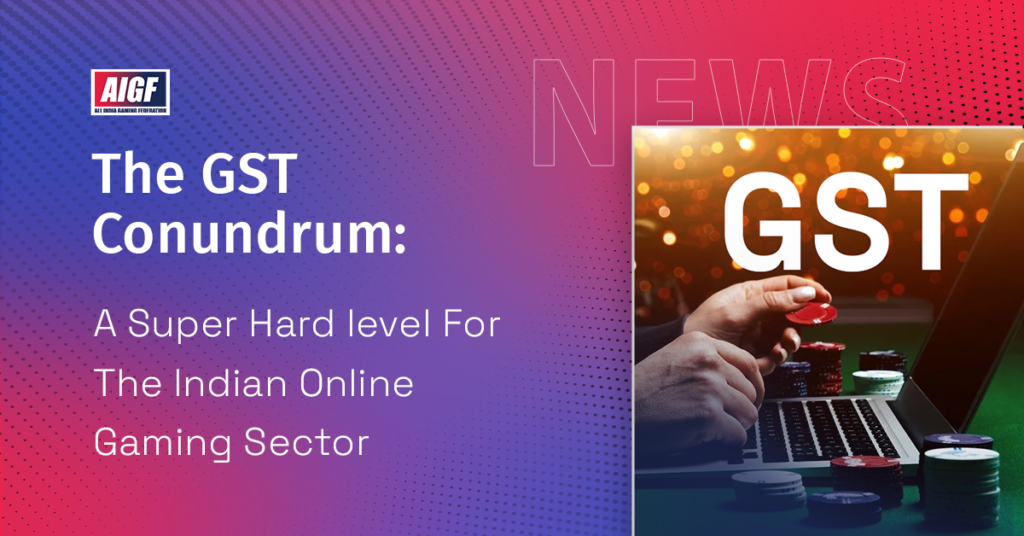


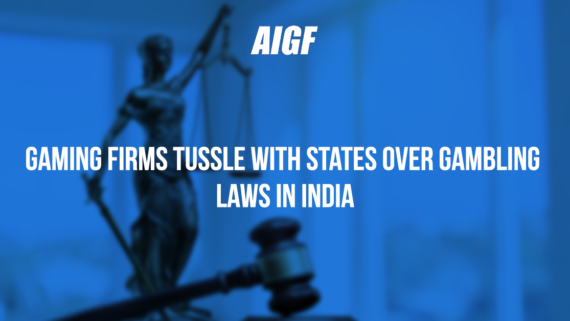
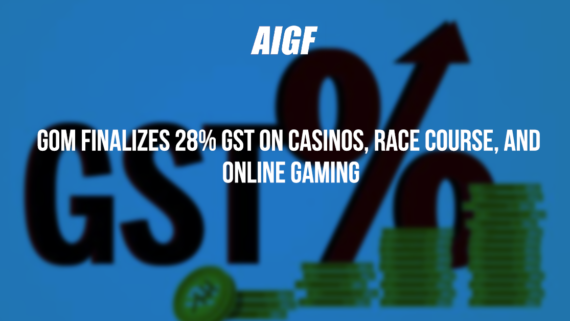
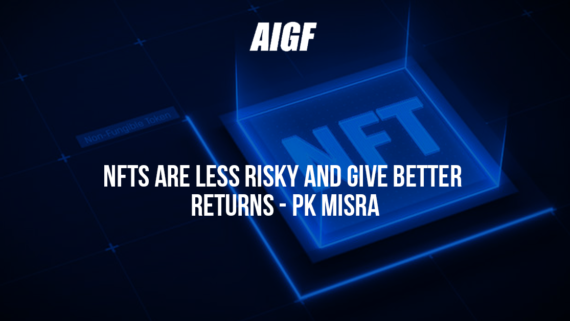
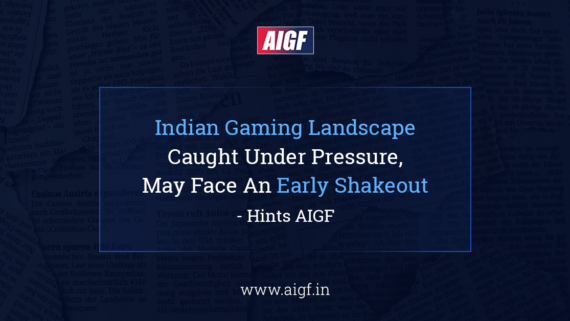


Comments
Comments are closed.